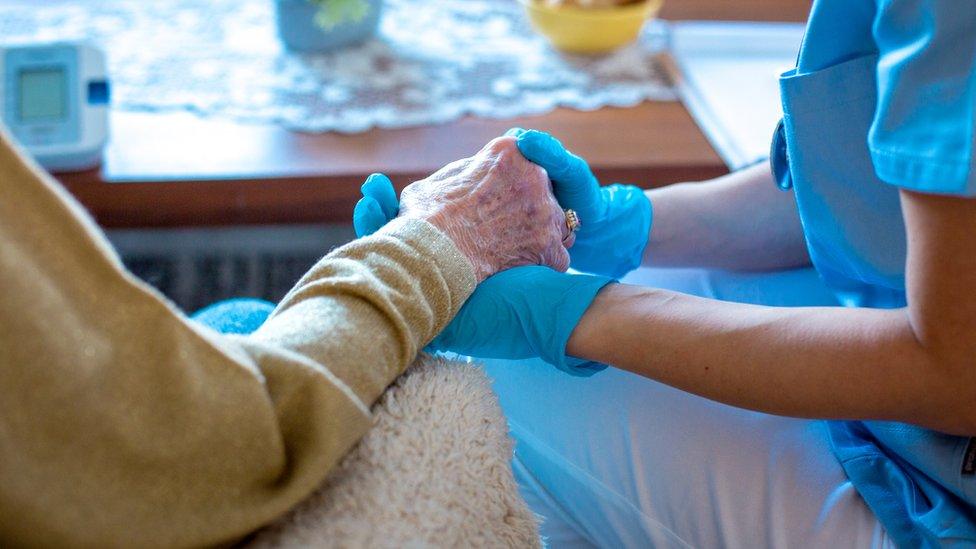Home care: Northern Ireland's waiting list increases by 60%
- Published
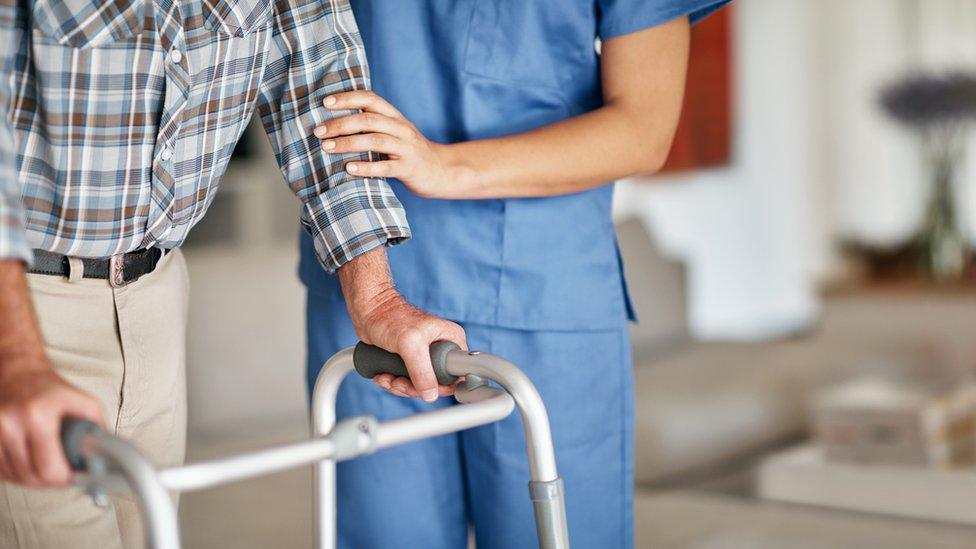
Many people need regular visits from carers in order to be able to live in their own homes
The number of people waiting for a home care package in Northern Ireland has risen by more than 60% since October 2021.
That is despite a £23m funding package being announced for the home care sector late last year.
Care packages are required by those who need help washing, dressing or cooking, or whose home needs adaptations.
Official figures show more than 2,600 people were waiting for a care package in August.
In October 2021, just before the funding announcement, the number of people waiting for a care package was 1,657, according to Department of Health data.
The August figures show that another 1,591 people were awaiting part of their assessed domiciliary care package.
The £23m support package announced in November 2021 by Health Minister Robin Swann was designed to allow domiciliary care companies to offer improved pay rates and terms and conditions and to potentially attract more staff.
About 75% of home care in Northern Ireland is provided by the independent sector.
Without this assistance, some patients have to stay in hospital or residential care.
The Department of Health said the most recent figures include people who are currently being looked after in hospital or in a care home.
It also includes people who are at home and who have been assessed as needing a care package, the department said.

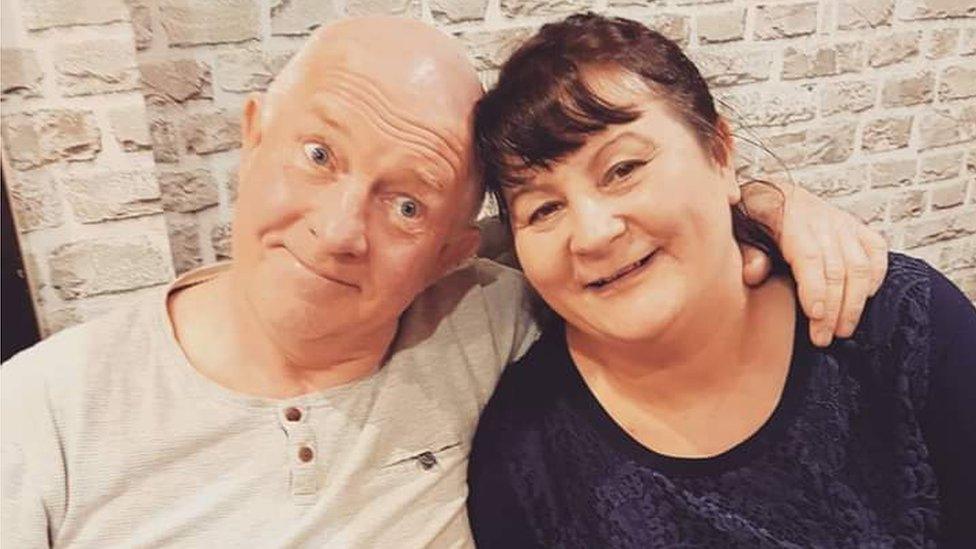
Terence Devine said he thought wife Brenda would have been allowed home when the funding was announced
Brenda Devine, from Greysteel in County Londonderry, has been waiting to get home for more than a year.
She lives with Alzheimer's and is being cared for in a nursing home.
Her husband Terence said that when the £23m funding package was announced their hopes raised that she would be home soon.
But he told BBC Radio Foyle that nothing has changed since then.
"This is still ongoing to this very day," he said.
"I am still working on trying to get Brenda home, having meetings with social workers and they still have no carers and Brenda has been top of the list for over a year.
"God help anyone waiting further down the list."
Terence said "the people in power should be doing more about this".
"I feel we have been forgotten about," he said.

The chief executive of the Independent Health and Care Providers, Pauline Shepherd, said last year's funding package has increased capacity in the home care sector.
About 10% more hours of care are being provided since it was announced, she said.
"But the bottom line here is there are many more people being added to the unmet need list and waiting for care," Ms Shepherd said.
"The number of people needing care in Northern Ireland is increasing significantly - this indicates we need to do something more radical and strategic to actually address this issue."
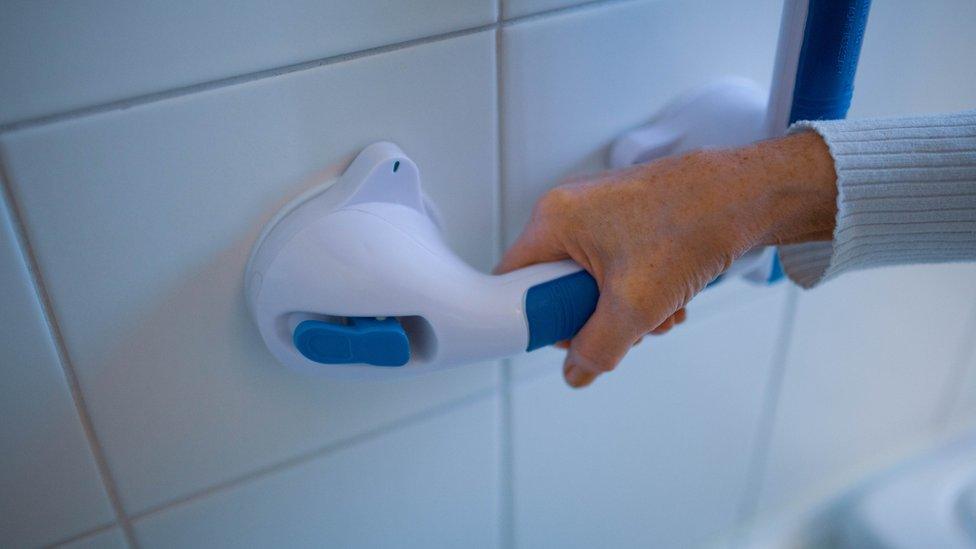
Some care packages involve making adaptations to care users' homes
The Department of Health told BBC Radio Foyle that the funding had been rolled out across Northern Ireland's hospital trusts.
An additional £25m has been allocated for domiciliary care for 2022-23.
"Although the overall demand for care packages continues to increase, the department is confident that the funding to date has assisted in stabilising the sector, and has supported the capacity of providers to deliver care packages," said the department.
It said it was not able to detail how many additional carers had been brought into the sector by the funding package.
"[The department] does not hold this information as we would not have access to HR information for private companies," it added.
It said about £17.5m was allocated to provide an increase to the rates paid for domiciliary care and increased mileage rates.
"We recognise that care workers have frequently gone above and beyond and their contribution to the health service is invaluable," said the department.
"The minister has communicated his profound thanks to them on many occasions and was pleased to recognise this through award of a special recognition payment to health and social care workers."
Related topics
- Published16 August 2021
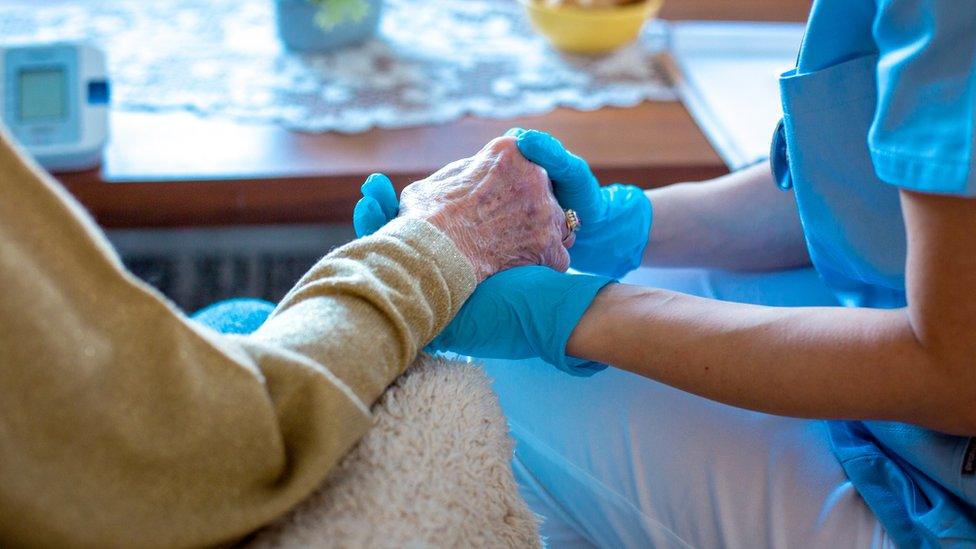
- Published12 November 2021
